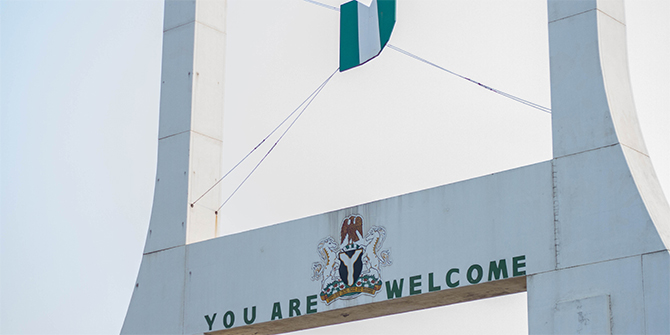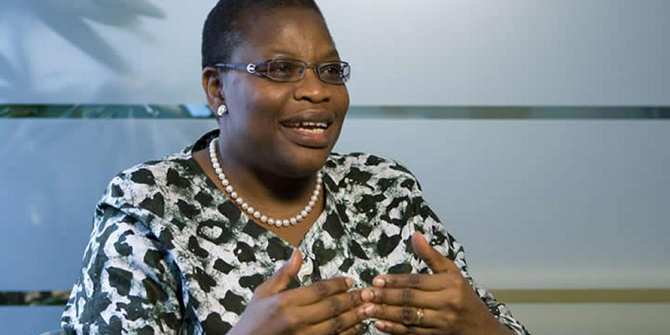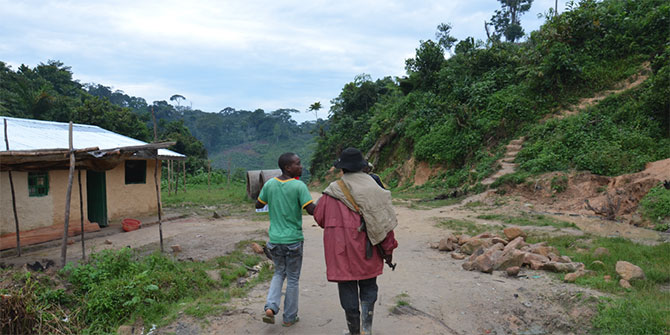Richard Stupart praises the book South Africa’s Insurgent Citizens as an “ exciting contribution for those looking for new ways of considering the question of ‘insurgent citizens.’”
When talking about contemporary South African politics, it has become almost cliché to point to the instability of the country’s current political-economic structure. A combination of staggering inequality, mass unemployment, high levels of grassroots protest in many communities, and high-profile instances of state violence have made it clear that the post-1994 consensus may be starting to unravel. Being interested in this political trajectory has increasingly meant trying to find an appropriate frame through which to understand the mobilisation of ordinary citizens and their communities outside of formal electoral politics, and how this popular protest might come to affect the country’s political order.
In South Africa’s Insurgent Citizens: On Dissent and the Possibility of Politics, Julian Brown adds to an  expanding body of work trying to understand the phenomenon of frequent, often violent protest by so many South Africans in the context of a society with apparently free and open room for participation in democratic governance. Much recent work on this phenomenon has popularised the ideas of Afro-Caribbean political philosopher Frantz Fanon, whose work has seen a resurgence in popularity among South Africa’s left-of-centre intellectuals. Brown’s divergence from Fanon in favour of the French philosopher Jacques Rancière is an exciting contribution for those looking for new ways of considering the question of ‘insurgent citizens’ outside of this paradigm.
expanding body of work trying to understand the phenomenon of frequent, often violent protest by so many South Africans in the context of a society with apparently free and open room for participation in democratic governance. Much recent work on this phenomenon has popularised the ideas of Afro-Caribbean political philosopher Frantz Fanon, whose work has seen a resurgence in popularity among South Africa’s left-of-centre intellectuals. Brown’s divergence from Fanon in favour of the French philosopher Jacques Rancière is an exciting contribution for those looking for new ways of considering the question of ‘insurgent citizens’ outside of this paradigm.
Brown develops an account of current South African politics using Rancière’s concept of a political moment as something that occurs when a group that has been assumed to be outside the political order – South Africa’s black poor – act as though they were equal to those who already enjoy citizenship rights. On Rancière’s account, this radical assertion of equality causes the current political order to be exposed as contingent, unstable, and – most dangerously – something changeable. This challenge to what is ‘politically normal’ then draws an inevitable answer from its representatives, and the outsiders must be accommodated, disciplined, or repressed, resulting in potentially emancipatory politics, co-option/negotiation, or authoritarian state violence, as three possible outcomes.
South Africa after 1994 has remained a society in which the majority of its citizens simply do not count as such – in the sense that they are not entitled to act politically. Those living on the margins of prosperity, unemployed, and with tenuous access to rights, are managed by the state, and meant to participate in ‘politics’ only through the formal spaces to which they are invited– the ballot box and formal consultation bodies. By acting outside of these invited spaces, these communities are demanding that the state accommodate them on their terms – whether in a non-union mining strike, pursuing novel legal strategies against the government or unregistered protest gatherings. Insurgent Citizens examines the legal work of the Treatment Action Campaign, the protest strategies of Abahlali baseMjondolo, the Anti-Privatisation Forum, and other contemporary examples of ‘inappropriate’ citizen protest, to make the point that these should be understood as radical assertions of political equality, rather than simple demands for ‘service delivery’ by clients of a technocratic state.
In his use of Rancièrean ideas of politics, Brown opens the possibility for new thinking about the trajectory of South Africa’s political future. Technocratic ideas of protest as a cry for the state’s attention by its clients often evacuate any political analysis, while populist interpretations of Fanon amongst South Africa’s radical fringe has emphasised the reasonableness of violence as a response to the ‘violence’ of economic and political marginalisation, with little to say about how this ‘reasonable violence’ might contribute to the creation of an emancipated future country. Insurgent Citizens offers a third view. One that includes the potential for properly acknowledging communities’ assertions of equality and proceeding to redesign the national order around that principle. Insofar as South Africa continues to seek a way to escape its inequality and create an actually-just society, Insurgent Citizens offers a glimpse of both how that process is occurring, and how it might yet succeed.
South Africa’s Insurgent Citizens: On Dissent and the Possibility of Politics. Julian Brown. Zed Books.
Richard Stupart is the Features Editor of African Defence Review and holds an MPP (Conflict Studies) and MA Media Studies (Media and Famine). His primary research interests are media representation and humanitarian response, empathy and duty to distant suffering, and mixed research methods. Richard’s work has included reporting on postconflict recovery in northern Uganda, critiques of humanitarian response, and research periods in South Sudan and the eastern Democratic Republic of Congo. He blogs at Where the Road Goes. Follow Richard on Twitter @wheretheroad.
The views expressed in this post are those of the authors and in no way reflect those of the Africa at LSE blog or the London School of Economics and Political Science.






1 Comments